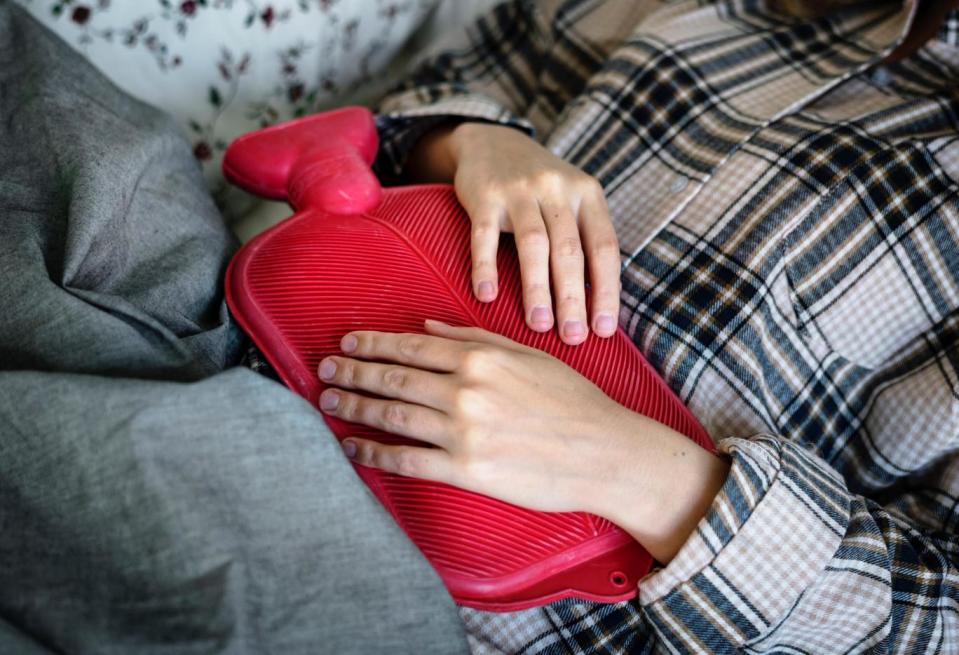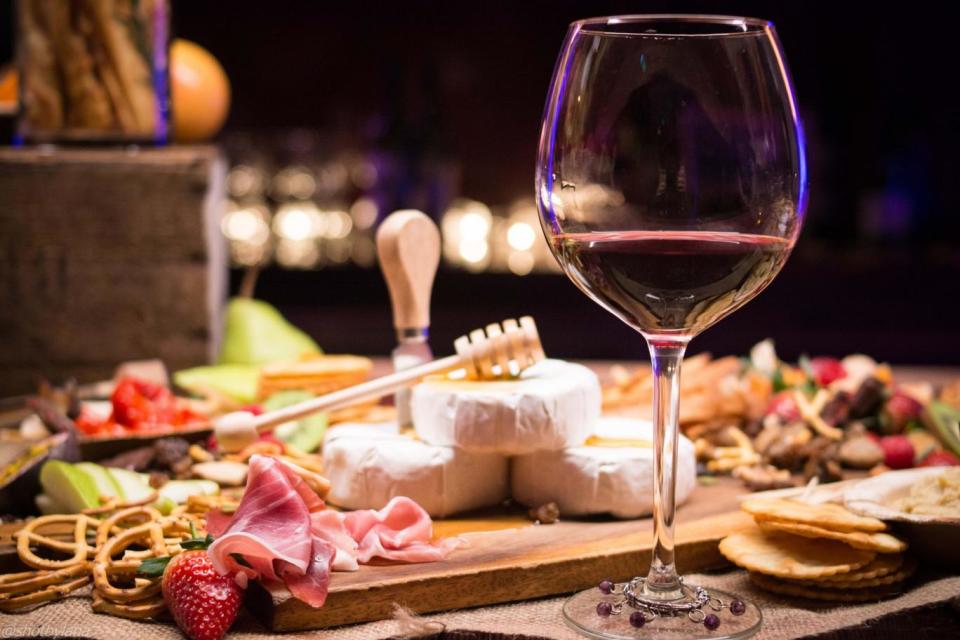Christmas bloating: How to reduce bloating before and after eating, according to a nutritionist

It’s nearly Christmas, which for many of us means over-indulging on delicious food and drink – and why not?
But, inevitably, our health and wellbeing can take a battering over the festive season, especially when most of that time is spent slumped on the sofa in front of our favourite Christmas films.
After snacks, endless glasses of Prosecco and a hearty Christmas dinner, before you know it you’re having to unbutton your jeans before dessert.
To investigate what to do when all that turkey and stuffing leaves you feeling quite literally stuffed, we spoke to nutritionist Dr Claudia Gravaghi about how to beat the bloat this Christmas:
What is bloating?
“Bloating is basically a symptom of indigestion which occurs either in the upper part of gastro intestinal (GI) tract (stomach and small intestine) or at the bottom (colon),” says Dr Gravaghi.
According to the NHS, if your stomach often feels bloated, it could be due to excess wind, constipation, swallowing air (e.g. from talking while eating), coeliac disease, food intolerance or irritable bowel syndrome.
What causes bloating?

“Eating in a hurry increases the chance of bloating because the food you eat doesn’t have enough time to get digested," says Dr Gravaghi.
“Secondly, when the partially digested food arrives in contact with the bacteria in the colon, the bacteria try to continue the digestion but if they can’t do it properly it produces gas (bloating).
“This happens for example with lactose (the sugar of milk) in people that don’t have or have less lactase the enzyme that digest lactose.”
How common is bloating?
“Bloating is extremely common, especially in people with a very active lifestyle.”
Do women bloat more than men?
“No, but they often suffer from candida without knowing.
“Candida is a fungal infection due to any type of candida (a yeast) and one of the main symptoms are intense bloating and sugar cravings.”
Can anything besides food and drink cause bloating?
Whilst food and drink contribute heavily to bloating, Dr Gravaghi stresses that there are other factors at play.
“Stress, food intolerances and sensitivities also play a big role,” she said.
Which foods make you bloated?
Watch out for wheat, gluten, dairy and excessive sugar, warns Dr Gravaghi.
“Sometimes pulses and legumes if not properly soaked,” she added.
“And also excessive fibre intake such as having 2-3 portions (80g) of broccoli two times a day.”
Do any foods prevent bloating?
“Two teaspoons of ground linseeds a day in warm water is a good remedy,” Dr Gravaghi recommends.
Does drinking alcohol cause bloating?

Suffice to say, polishing off that bottle of red after Christmas dinner won’t help you in the bloating department.
“The worst are sugary cocktails with syrups,” says Dr Gravaghi.
“And beer is especially bad for people who are wheat or gluten intolerant.”
Are there any safe bets when it comes to enjoying a tipple?
“Gin is gluten and wheat-free. If it’s consumed in moderation in combination with a sugar-free tonic water, it’s much better than other options.”
How to get rid of a bloated stomach after a big meal
“Start by eating and drinking slowly,” advises Dr Gravaghi.
“Taking digestive enzymes 15 minutes before eating may also help, especially for those people who tend to have a strict diet regularly but they indulge during social occasions.
“Before bed, take probiotics to boost your good bacteria with a big glass of warm water to rehydrate your body from the heavy drinking.
“Fasting for the following 14-15 hours after dinner (i.e. just having black coffee in the morning) helps to fully digest the excesses.”
Which Christmas foods cause bloating?

Unfortunately, Christmas dinner is not too kind on your stomach when it comes to bloating.
“Try and only have small portion of fatty and creamy food such as Baileys, gravy made from animal fats and brandy butter,” says Dr Dr Gravaghi.
“If you have a sweet tooth, opt for dark chocolate, as this has a lower sugar and dairy content.”
Does exercise help prevent bloating?
“Yes – exercising helps reduce stress and tone the abdominal muscles.”
Instead of forcing yourself to power through a jog after a heavy meal, Dr Gravaghi suggests trying gentle exercises such as yoga or Pilates.
Are there any diets that can stop bloating?
“Yes, there are many. The Ketogenic (or KETO) diet for example has a high intake of fat, adequate protein count and a very low amount of carbohydrates.”
“Remember your body adapts very quickly, so if you remove a specific category of food for too long, it will struggle to digest it in the future.”
Any other tips on how to beat the bloat?
“Try to be vigilant and investigate which foods cause the most discomfort.
“Also eat slowly and not in front of the computer. The well-known 'brain-gut axis' is well proven. If you read an upsetting email from your boss while you’re eating your healthy lunch, there is a good chance of bloating in any case.”
Dr Claudia Gravaghi is a registered nutritionist. You can find out more on her website.

 Yahoo News
Yahoo News 
